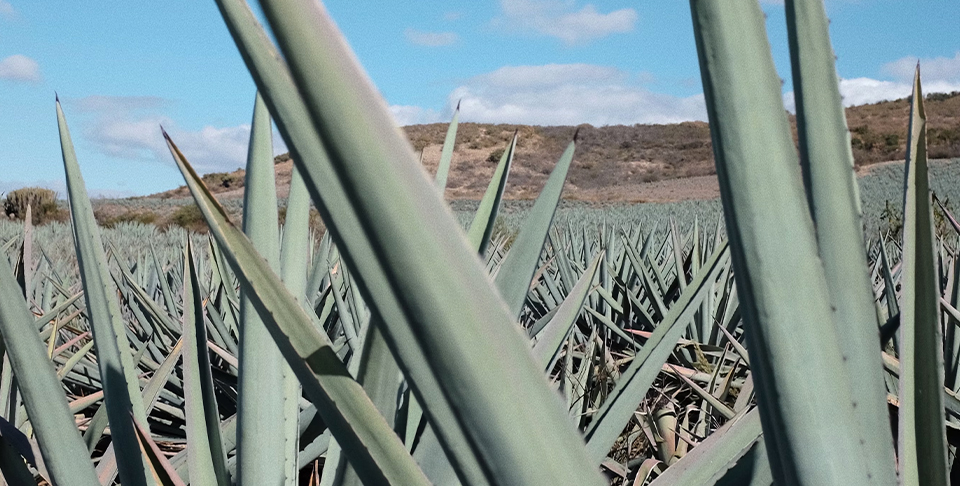Free Shipping - 48hrs Only | Use Code: FREESHIP
Ends 26/04 11:59PM AEST Min spend $79
 Quick Summary
Quick Summary
- Agave syrup, or nectar, is a natural sweetener derived from the sap of the agave plant, predominantly composed of fructose, a fruit sugar.
- Unlike sucrose, agave has a low GI, making it metabolically distinct as it's primarily processed by the liver and doesn't significantly affect blood sugar levels.
- Agave syrup is made from agave plants like Agave salmiana and Agave tequiliana (Blue Agave), native to Mexico, the Southern United States, and South America, with a process that involves juice extraction, filtration, and concentration.
- Agave's low GI property helps in reducing blood sugar fluctuations, which can curb unhealthy cravings and aid in weight management.
- Due to its minimal impact on blood glucose levels, agave might be a suitable sweetener alternative for diabetes management, potentially aiding in lowering glycosylated protein levels.
- Popular among natural and raw food dieters and as a vegan alternative to honey, agave's versatility makes it suitable for various dietary preferences.
What is Agave?
Agave syrup, or agave nectar, is an alternative sweetener produced from the sap of the agave plant. Agave is very high in fructose, the simple sugar found in fruit. Fructose does not activate the insulin pathway in the same way that sugars like sucrose do, instead it is metabolised directly by the liver and does not have a major effect on the blood sugar levels.
This low GI, natural sweetener has been heartily embraced by many sections of the health community and it has recently surged in popularity. Despite this, agave has several critics. Let's look at the evidence.
Where does Agave come from?
Several species of agave plants, including Agave salmiana and Agave tequiliana (also known as Blue Agave, which can also be fermented to produce tequila) are used to produce agave syrup. These plants are endemic to Mexico and are also found in the Southern United States and tropical South America.
Juice is extracted from the centre of the plant and purified by filtration. The filtered liquid is then subjected to heating or enzymatic treatment to break the polysaccharides down into fructose and other simple sugars. It is then concentrated to form the final product - a syrup with a consistency slightly thinner than honey.
Agave Benefits?
The growth in agave's popularity has taken place almost concurrently with the demonisation of American staple sweetener, high fructose corn syrup (HFCS). This is ironic because agave has a higher fructose content than HFCS. It may surprise some people that a high fructose diet can have benefits.
Agave can be beneficial for weight loss. We know that the peaks and troughs in blood sugar associated with consumption of high GI foods can drive unhealthy cravings, and affect mood and focus (1). Agave syrup does not drive the release of insulin and, therefore avoids triggering hormonal hunger signals. A study in mice showed that animals with unlimited access to food that used agave as a sole carbohydrate source had significantly reduced weight gain and accumulation of fat when compared to those feeding on an identical diet that had sucrose in place of agave (2).
One of the major pathologies of diabetes is protein glycosylation, or the chemical attachment of excess glucose to proteins, which can interfere with correct functioning. The amount of glycosylated haemoglobin protein (HbA1C) is often used as a marker of diabetes control. Because agave does not raise blood glucose to the same extent as sucrose, it may be a good alternative sweetener for some sufferers of diabetes, because agave use may help in reducing the level of glycosylated protein (3). Early research has shown that mice fed on agave have significantly lower resting blood glucose and insulin concentrations than those fed on sucrose (2).
People who choose to eat natural or raw foods sometimes have trouble finding palatable alternative sweeteners. Agave has been very popular amongst followers of these diets. Due to its texture and botanical origins, it is also a popular honey alternative amongst vegans.
Agave Benefits for Bodybuilders and Athletes
Agave, as an alternative to refined sugar, may be of benefit to bodybuilders and athletes who are cutting, due to the potential weight loss benefits of this product.
There is some thought that the syrup from the agave plant is high in antioxidants. In that case, it may assist in recovery from training. Unfortunately, scientific analysis has failed to demonstrate this property (4).
Some endurance athletes choose to use fructose as a carbohydrate source because it provides energy without spiking the blood sugar, and it can replenish glycogen fast in the presence of glucose.
Agave Side Effects, Safety & Negatives
Although it has shown some promise in reducing body weight and controlling blood sugar and insulin levels, there has so far only been a single, small, mouse study that has looked at the metabolic properties of agave syrup (2). There needs to be a lot more research into agave syrup, including human research before any serious claims can be made about beneficial properties.
Despite a lack of research into agave syrup itself, it is a high fructose product, and there has been a lot of research into the metabolic effects of this sugar due to the implication of HFCS in America's increasing obesity epidemic. While high fructose consumption does not raise blood sugar, it has been implicated in insulin resistance and the development of metabolic syndrome and type 2 diabetes. On top of this, it has been associated with dyslipidemia, particularly high triglyceride levels. This is a big risk factor for cardiovascular disease. Despite the ability to reduce HbA1C levels, fructose is known to have a high attachment affinity for proteins and lipids through a process called glycation. Glycation is implicated in several chronic diseases (5).
Some people suffer fructose malabsorption and are unable to properly digest this sugar. Consuming large amounts of fructose can bring about gastrointestinal symptoms like bloating, diarrhoea and stomach cramps, while some people experience lethargy, headache, mild depression and irritability (6).
On the other hand, much of this research has been conducted in animals, and has concentrated on extremely high fructose levels, or it has examined high fructose consumption in concert with a hypercaloric diet which also contained large amounts of fats and other forms of carbohydrates (7).
Fructose is a politically charged subject, particularly in the USA, and many of the effects of fructose, both positive and negative, are overstated. Many researchers believe a high-fructose diet to be just as harmful as a high glucose diet, or a high-fat diet, and recommend moderation (7).
Agave Recommended Dosage and Ingredient Timing
Agave is designed to be used in place of sucrose and is a suitable replacement in almost every circumstance. Australian dietary guidelines recommend a "moderate" daily intake of simple sugars which they define as comprising up to 10% of total calories. This equates to a maximum of 50g per day for someone eating an average 2000-calorie diet.
Agave Supplements
Agave is generally sold through health food stores and natural food retailers.
Stacking Agave
Use agave in place of sugar or honey. It is the perfect accompaniment to any food or drink that needs a sweet touch. Agave is delicious in a high-protein smoothie or drizzled over pancakes, and is great in baked goods.
(1) Bornet FR, Jardy-Gennetier AE, Jacquet N, Stowell J. Glycaemic response to foods: impact on satiety and long-term weight regulation. Appetite. 2007 Nov;49(3):535-53.
(2) Hooshmand S, Holloway B, Nemoseck T, Cole S, Petrisko Y, Hong MY, Kern M. Effects of Agave Nectar Versus Sucrose on Weight Gain, Adiposity, Blood Glucose, Insulin, and Lipid Responses in Mice. J Med Food. 2014 Jul 10.
(3) Livesey G, Taylor R. Fructose consumption and consequences for glycation, plasma triacylglycerol, and body weight: meta-analyses and meta-regression models of intervention studies. Am J Clin Nutr. 2008 Nov;88(5):1419-37.
(4) Phillips KM, Carlsen MH, Blomhoff R. Total antioxidant content of alternatives to refined sugar. J Am Diet Assoc. 2009 Jan;109(1):64-71.
(5) Tappy L, Lê KA. Metabolic effects of fructose and the worldwide increase in obesity. Physiol Rev. 2010 Jan;90(1):23-46.
(6) Riveros MJ, et al. Fructose consumption and its health implications; fructosemalabsorption and nonalcoholic fatty liver disease. Nutr Hosp. 2014 Mar 1;29(3):491-9.
(7) Tappy L, Lê KA, Tran C, Paquot N. Fructose and metabolic diseases: new findings, new questions. Nutrition. 2010 Nov-Dec;26(11-12):1044-9.


